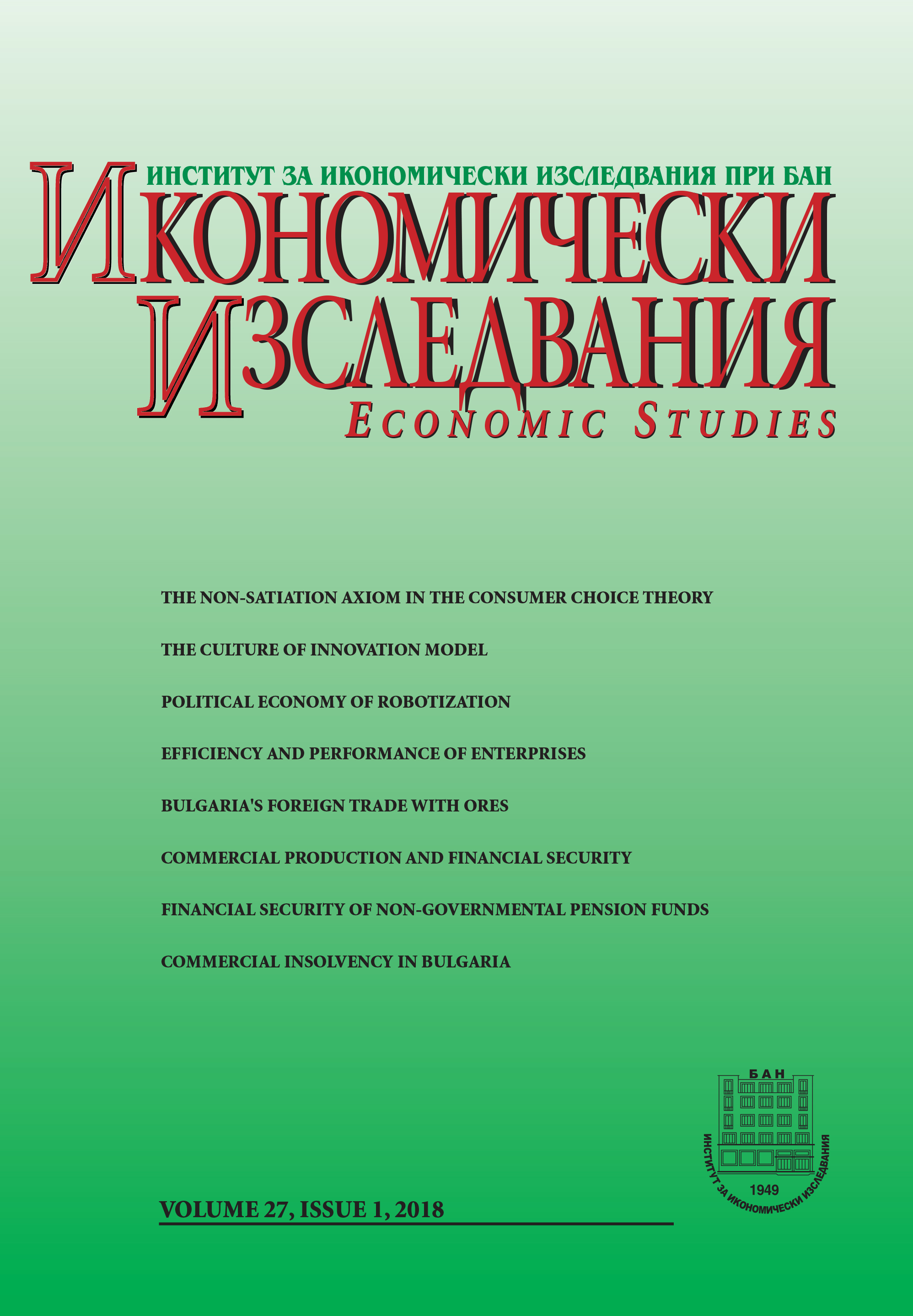Political Economy of Robotization
Political Economy of Robotization
Author(s): Hristo ProdanovSubject(s): Economy
Published by: Институт за икономически изследвания при Българска академия на науките
Keywords: robotization; automation; industrial revolution; labor; employment
Summary/Abstract: This article is about robotization and its consequences that are to become a precondition for serious social conflicts and contradictions. To prove this thesis, I first examine the process of robotization during past decades and especially during the past few years in order to illustrate the scale of the problem, which is on its earlier stage today, but is expected to change the economic and political reality of all societies in the years to come. After that, I examine two main views about the contradictions and conflicts that robotization brings. Firstly, attention is paid to the vision of techno-optimists, which corresponds mainly to the theories of neoliberalism and neoclassic. After that, the view of techno-pessimists is examined, related mainly to realistic and Marxist tradition in political economy. Several aspects of the contemporary discussion about the overcoming of the contradictions of robotization are addressed – mainly through reduced working hours, unconditional basic income and taxing robots instead of humans. The idea is that replacing people with robots will raise growing problems to all human societies, so steps must be taken to overcome the emerging contradictions. The important thing here is the need to address the education, innovativeness and the ability of the modern man for a fast reaction to the quickly changing economic and social environment. Everything now is about adjusting economies for the rising “Industry 4.0”, which brings the question about the need of a new political economy to mitigate the contradictions of the transition from the Third to the Fourth industrial revolution.
Journal: Икономически изследвания
- Issue Year: 2018
- Issue No: 1
- Page Range: 69-86
- Page Count: 18
- Language: English

